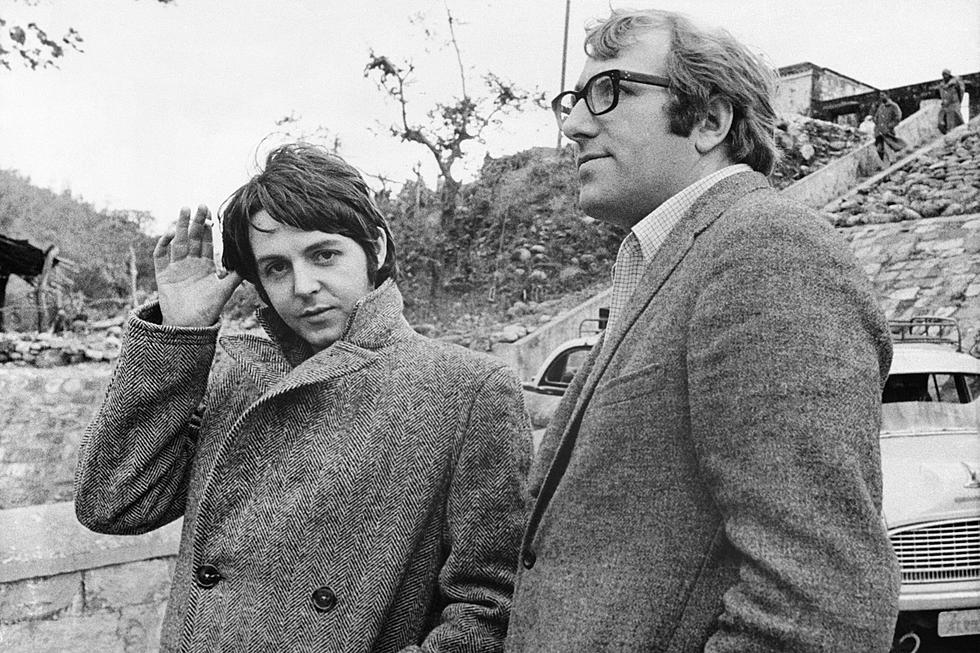
How the Beatles Reacted to the Loss of Their ‘Mother’ Mal Evans
The author of a book about trusted Beatles assistant Mal Evans discussed how the band members reacted to his tragic death in 1976.
Once regarded as the band’s “mother” – and mentioned as “Mother Malcolm” in Paul McCartney’s original lyrics for ‘Let It Be’ – Evans descended into drug addiction and was shot dead at his L.A. home after a standoff with police as he threatened them with a shotgun.
“He was handy,” said Beatles scholar Kenneth Womack, whose book Living The Beatles Legend: The Untold Story of Mal Evans was published last month. He told Rolling Stone: “Mal just knew knew how to do things. He was a little older than they were, so he seemed more worldly, even though he probably wasn’t. I do think he won them over once and for all on the 1964 tour, where he’s using his strength and girth to save their lives. The way he protected them on those tours is pretty amazing.”
To those less aware of Beatles history, Evans is perhaps best known as the tall man who’s seen delaying cops on the roof of the Apple Corps building in London as the band deliver what would be their final live show.
“He was shrewd when it came to thinking his way out of a scrape,” Womack said. “The Peter Jackson film left out one of his best moments from the sessions. There’s a day in the studio when he knows John is sick and having a bad day on heroin, when he’s interviewed by Canadian television journalists. That’s an important moment because John gets sick from the junk, and Mal keeps constantly running in to check on John. And when it got really bad, Mal was in head-first taking John out of that space.”
The writer added: “In a lot of ways, he was a weapon to have. He could talk to anybody – this real gift of gab. They would get tired of talking to Burt Lancaster or somebody like that after a while, but Mal could go all night. So Mal was quite useful for his ability to be a diversion.
READ MORE: The Beatles’ Final Concert
“There would be times when the Beatles were fighting with themselves, but Mal would get them to turn their ire on him so that they could get along, make the record, play the show, or whatever it happened to be.
“Paul could ask him for a line. He delivered a great line in ‘Here, There, and Everywhere.’ Mal wrote about it the day it happened, in his notebook—“Paul needed a line and I gave him ‘watching her eyes and hoping I’m always there.’”
Evans continued to work with the members after the band split. “As John and George put it, he gave them ‘tea and sympathy,’” Womack said. “He was a stand-in for real life. Paul says this at one point: ‘You’re the straight one. We like having you around for that reason.’ But of course, Mal was chameleonic. He was emulating them the whole time. You can see it in his look and his haircuts as they change over the years. They try LSD, Mal tries LSD.”
Womack pinpointed the moment it all started going wrong for Evans, saying it was when George Harrison took him to Woodstock. “There are just so many near misses with Mal. It breaks your heart,” the author reflected. “Mal just never goes home, and he’s so terrible to his family. The Southern California rock culture of the 1970s is so cocaine-fueled, and there are a lot of people living very recklessly. So what do the Beatles do? Most of them move out there. … Mal needed more adults in his life.”
George Harrison Apologized for Mal Evans’ Death
Turning to the members’ response to what he called Evans’ “suicide by cop,” Womack reported: “They never stopped loving Mal… [his son] Gary told me about the time in the early ‘80s when George came over to their house, to apologize for his role in setting these things into motion, with Mal moving to L.A. I cried the first time I heard that.
“When John Lennon heard the news, he called the house to say, ‘What the fuck is going on out in L.A.?’ And they had to tell him that Mal was really dead, and John just sobbed.” He added that Lennon had tried to talk Evans down from “what was clearly a crisis” a few days before the tragedy.
“Mal should have been receiving some kind of mental-health care,” Womack asserted. “He needed treatment, in a world that didn’t know how to deal with that. But he had been suicidal for some time. When he said that he wanted to go out in a hail of bullets, he knew what he meant – a hail of bullets.
READ MORE: 30 of the Best Rock Music Books of 2023
“The biggest red flag was the will that he drew up the night before. He was intoxicated, but I do think he’d been planning that for a long time. It’s about four pages, and that’s where he says the Beatles should get together and have a reunion concert when he dies. He was off the handle then, but in the cold light of day, he followed through on that plan.”
Of the incident itself, Womack said: “The police really were the least of the problem. They did what police do, as you know. They didn’t rush in and take him out – it was a methodical process. They did it by the book, and when a guy begins to aim a loaded rifle at them, they did what police do, which is what Mal was planning for. He orchestrated that.”
The Most Shocking Rock Star Fashion Reinventions
Gallery Credit: Bryan Rolli
The Beatles Are One of the Bands Who Hated Their Own Album




